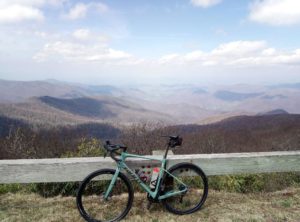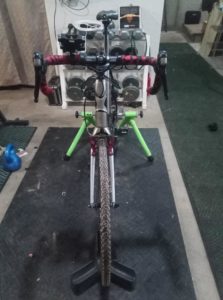By: Jared Dunham
There are some workouts that we don’t want to finish or even start, however when this happens more often than not, it may be clear that you’re suffering from burnout or overtraining. Burnout is especially detrimental to training because it is not something like sickness where resting for a few days or taking medication can fix, it’s something that must be mentally worked through and has no quick fixe. It’s not a matter of lacking the strength or endurance to finish a workout but instead the motivation, which can be much worse. Personally, I’ve had fleeting experiences with burnout but none to the degree I experienced near the end of this past off-season. That being said, here are some things I learned recovering from overtraining.
burnout or overtraining. Burnout is especially detrimental to training because it is not something like sickness where resting for a few days or taking medication can fix, it’s something that must be mentally worked through and has no quick fixe. It’s not a matter of lacking the strength or endurance to finish a workout but instead the motivation, which can be much worse. Personally, I’ve had fleeting experiences with burnout but none to the degree I experienced near the end of this past off-season. That being said, here are some things I learned recovering from overtraining.
Diversify: My first suggestion, especially during the winter months, would be to find multiple forms of exercise. Indoor cycling can remain the primary concern but doing another sport that cross-trains well is incredibly beneficial when biking-in-place gets mentally taxing. All my time spent training this past season revolved around two options; strength/weight workouts and indoor cycling.  I did two strength workouts per week and six cycling. The issue was a lack of variety. Therefore, strength training had always seemed like a breath of fresh air to me each week. When I initially “cracked” there weren’t other forms of exercise to fall back on. Even if you don’t do these sports on a regular basis having them in your armory will be beneficial to keep your training on tract when you get sick of indoor cycling. Some sports/disciplines that would be beneficial are: cross-country skiing and fatbiking (if you have the trails), indoor track cycling (if you’ve got the track), weight lifting/strength training, snowshoeing, running, or swimming. Other activities that will at least get you outside would be: downhill skiing/snowboarding or snowmobiling.
I did two strength workouts per week and six cycling. The issue was a lack of variety. Therefore, strength training had always seemed like a breath of fresh air to me each week. When I initially “cracked” there weren’t other forms of exercise to fall back on. Even if you don’t do these sports on a regular basis having them in your armory will be beneficial to keep your training on tract when you get sick of indoor cycling. Some sports/disciplines that would be beneficial are: cross-country skiing and fatbiking (if you have the trails), indoor track cycling (if you’ve got the track), weight lifting/strength training, snowshoeing, running, or swimming. Other activities that will at least get you outside would be: downhill skiing/snowboarding or snowmobiling.
Reach Out: If you are being coached make sure you’re in communication with them about the situation and express honestly what your feeling currently. If you’re self-coached then talking to a racer in your cycling community who has a few years of experience may help. Other than a coach or veteran cyclist, talking or spending time with family or friends can also improve the situation and allow you to chillout. After reaching out to my coach and explaining the situation we decided to switch a lot of my training to fatbiking as base miles near the end of the offseason.
Baby Steps: In order to fully return to the bike it may take time. Having another sport to stay active with will help, but for a good recovery, you may also need to reduce your time spent training per week or your training volume. If you’ve got time sensitive goals that you’re working towards then this concept may seem especially difficult, but I would recommend not taking huge leaps and bounds during this period. Continue working on your goals while you’re working through this and don’t beat yourself up over not getting to a specific FTP or weight by a certain date. Making these goals flexible will allow you to stay more optimistic while recovering. Something that helped me was looking at each day and seeing how I was improving or following my training plan. Each time I finished my stretching routine or stuck to my nutrition plan it was a good day.
 Relax: Possibly the most important piece to this process is to chill out. This situation will pass and won’t ruin your entire race season. Make sure to take some time and get the occasional RnR by doing another hobby, spending time with yourself or others, or whatever it is that you enjoy doing (off the bike). One of the issues with my recovery was that I was overthinking the issue. I’m a pretty big numbers person and they weren’t aligning the way I wanted them to for a few weeks. Sometimes you just need to take a step back and look at the big picture.
Relax: Possibly the most important piece to this process is to chill out. This situation will pass and won’t ruin your entire race season. Make sure to take some time and get the occasional RnR by doing another hobby, spending time with yourself or others, or whatever it is that you enjoy doing (off the bike). One of the issues with my recovery was that I was overthinking the issue. I’m a pretty big numbers person and they weren’t aligning the way I wanted them to for a few weeks. Sometimes you just need to take a step back and look at the big picture.
So to bring it all together, here are the things I would recommend getting around to sooner or later so that when you hit a phase of burnout you’ll be able to shrug it off faster:
- Find other hobbies you enjoy
- Find other sports that cross-train well (especially for winter)
- Invest in things that will make indoor riding more comfortable/easier (a new fan, Zwift, more towels, a better saddle, etc…)
- Take note when the workouts start to become mentally harder to complete. In my experience by the time I realized I was in a rut, it was already too late.
- Understand that every workout isn’t life or death. You can occasionally take it easy if you are very sore or mentally taxed.










